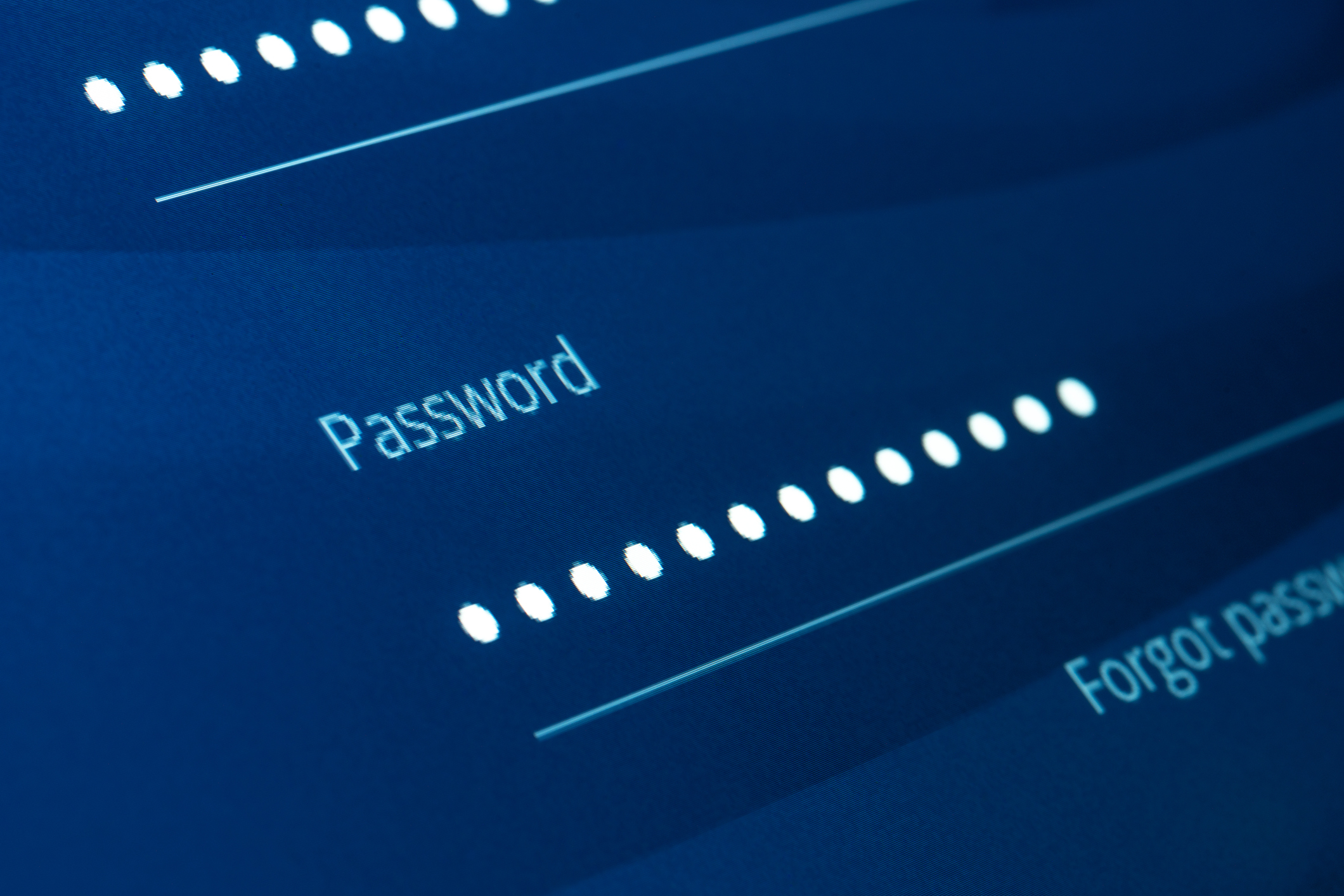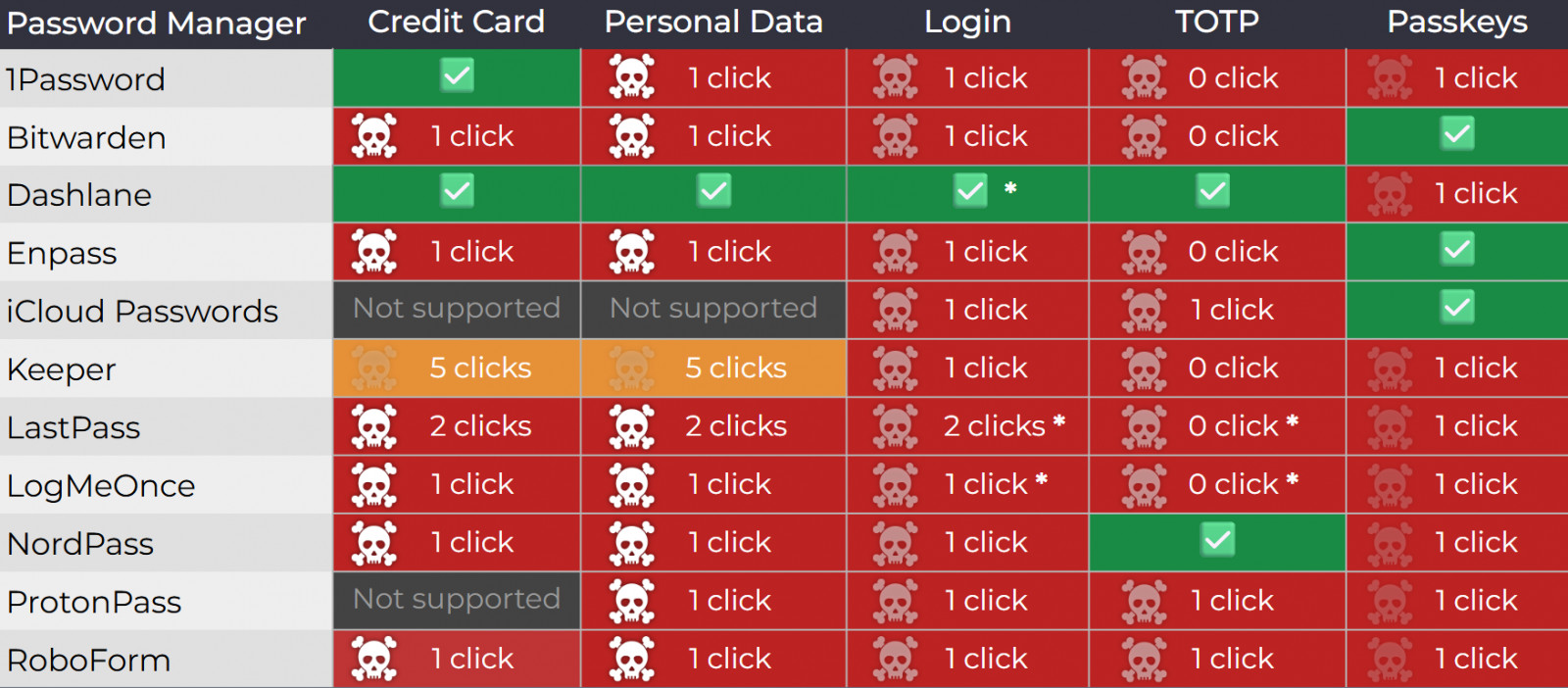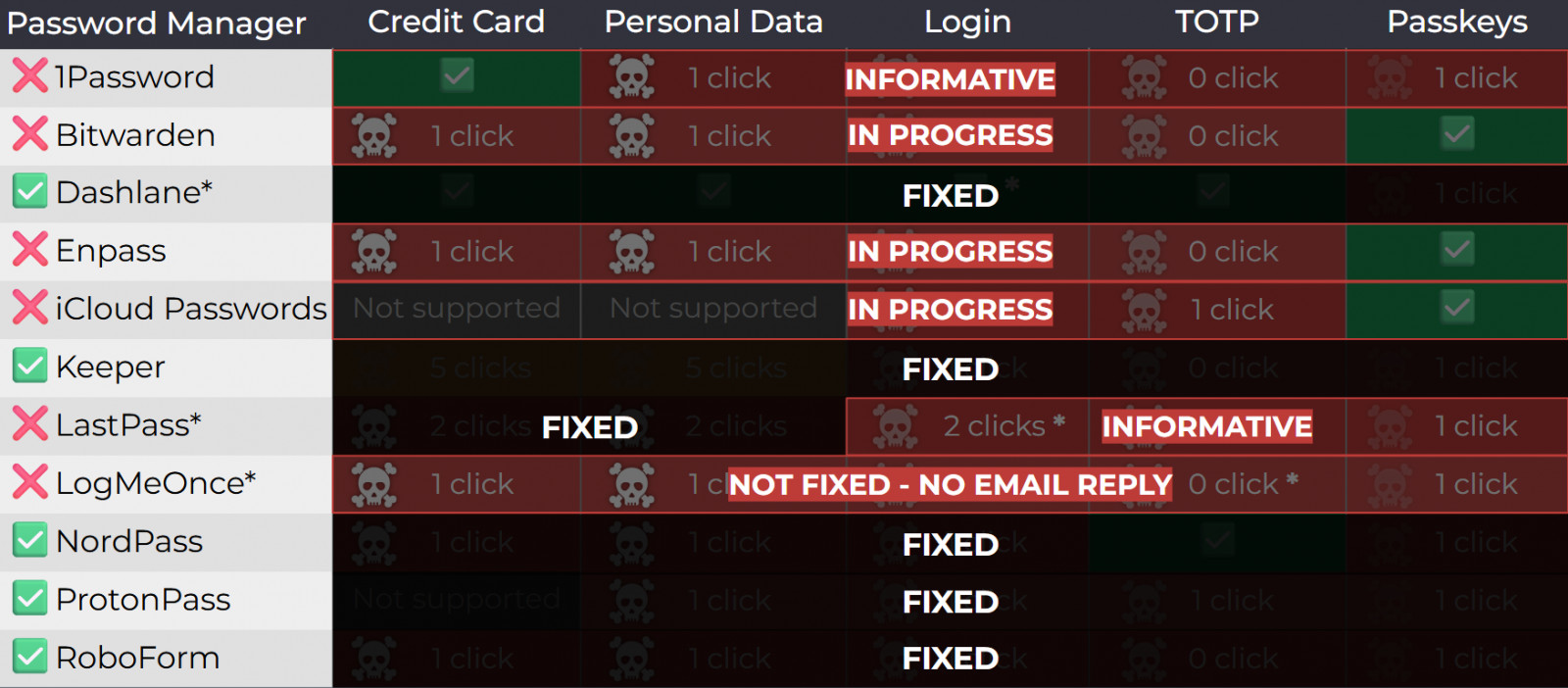Multiple top password managers vulnerable to password stealing clickjacking attacks - here’s what we know
Several password managers can be attacked to steal data

Sign up for breaking news, reviews, opinion, top tech deals, and more.
You are now subscribed
Your newsletter sign-up was successful
- Multiple password managers are suceptible to a new attack
- The attack abuses opacity settings and autofill capabilities
- Passwords, 2FA codes, and credit card details can be stolen
At the recent DEF CON 33 conference, independent researcher Marek Tóth unveiled a clickjacking attack he claims could exploit the autofill capabilities of six of the biggest password managers.
The attack is able to steal passwords, 2FA codes, and credit card details, making it a serious concern for tens of millions of password manager users.
Tóth tested the attack against versions of 1Password, Bitwarden, Enpass, iCloud Passwords, LastPass, and LogMeOnce, and found that the browser-based variants could leak stored data under the right conditions.
Get Keeper's Personal Password Manager plan for just $1.67/month
Keeper is a password manager with top-notch security. It's fast, full-featured, and offers a robust web interface. The Personal Plan gets you unlimited password storage across all your devices, auto-login & autofill to save time, secure password sharing with trusted contacts, biometric login & 2FA for added security.
Major password managers at risk
The attack relies on using a website that uses opacity settings, overlays, or a pointer-event to make the autofill function of the web-based password manager to appear invisible. The websites can either be malicious sites, or legitimate sites that have been compromised.
The attacker then uses a pop-up or CAPTCHA that deliberately places the user’s clicks on the hidden password manager controls, autofilling the credentials into the form and stealing them.

What makes this attack vector even more concerning is that the attacker could use a universal attack script to identify the password manager active on the web browser and adjust the attack to target it specifically.
Other variations of the attack were demonstrated at DEF CON 33, including several DOM-based subtypes that abuse the opacity at the element, parent element, root, and overlay level, as well as an attack that can trigger autofill anywhere the cursor is placed.
Sign up to the TechRadar Pro newsletter to get all the top news, opinion, features and guidance your business needs to succeed!

Tóth notified the companies on which he tested the attack vector in April 2025, also stating that public disclosure would be made at DEF CON 33 in August. Cybersecurity researchers at Socket verified Tóth’s methods and assisted in notifying the affected password managers.
Several password managers remain vulnerable to the attack, including these versions:
- 1Password 8.11.4.27
- Bitwarden 2025.7.0
- Enpass 6.11.6 (partial fix implemented in 6.11.4.2)
- iCloud Passwords 3.1.25
- LastPass 4.146.3
- LogMeOnce 7.12.4
The latest versions of Dashlane, NordPass, ProtonPass, RoboForm, and Keeper have all been patched against Tóth’s demonstrated attack vector. LastPass and LogMeOnce are currently working on fixes for the attack.

Several companies issued comments to BleepingComputer following the publication’s article.
LastPass:
"We appreciate the work of security researchers, like Marek Tóth, who help raise awareness about potential threats and improve industry-wide security. The clickjacking vulnerability Marek uncovered highlights a broader challenge facing all password managers: striking the right balance between user experience and convenience, while also addressing evolving threat models.
LastPass has implemented certain clickjacking safeguards, including a pop-up notification that appears before auto-filling credit cards and personal details on all sites, and we’re committed to exploring ways to further protect users while continuing to preserve the experience our customers expect.
In the meantime, our threat intelligence, mitigation and escalation (TIME) team encourages all users of password managers to remain vigilant, avoid interacting with suspicious overlays or pop-ups, and keep their LastPass extensions up to date." - Alex Cox, Director Threat Intelligence, Mitigation, Escalation (TIME) at LastPass.
1Password:
"Clickjacking is not unique to the 1Password browser extension. It is a long-standing web attack technique that affects websites and browser extensions broadly. Because the underlying issue lies in the way browsers render webpages, we believe there’s no comprehensive technical fix that browser extensions can deliver on their own.
We take this and all security concerns seriously, and our approach to this particular risk is to focus on giving customers more control. 1Password already requires confirmation before autofilling payment information, and in our next release, we’re extending that protection so users can choose to enable confirmation alerts for other types of data. This helps users stay informed when autofill is happening and in control of their data." - Jacob DePriest, CISO at 1Password.
You might also like
- Take a look at the best free password managers around today
- I've rounded up the best antivirus software on offer
- Google Password Manager may be set to introduce a nuclear option for its Android app

Benedict has been with TechRadar Pro for over two years, and has specialized in writing about cybersecurity, threat intelligence, and B2B security solutions. His coverage explores the critical areas of national security, including state-sponsored threat actors, APT groups, critical infrastructure, and social engineering.
Benedict holds an MA (Distinction) in Security, Intelligence, and Diplomacy from the Centre for Security and Intelligence Studies at the University of Buckingham, providing him with a strong academic foundation for his reporting on geopolitics, threat intelligence, and cyber-warfare.
Prior to his postgraduate studies, Benedict earned a BA in Politics with Journalism, providing him with the skills to translate complex political and security issues into comprehensible copy.
You must confirm your public display name before commenting
Please logout and then login again, you will then be prompted to enter your display name.
